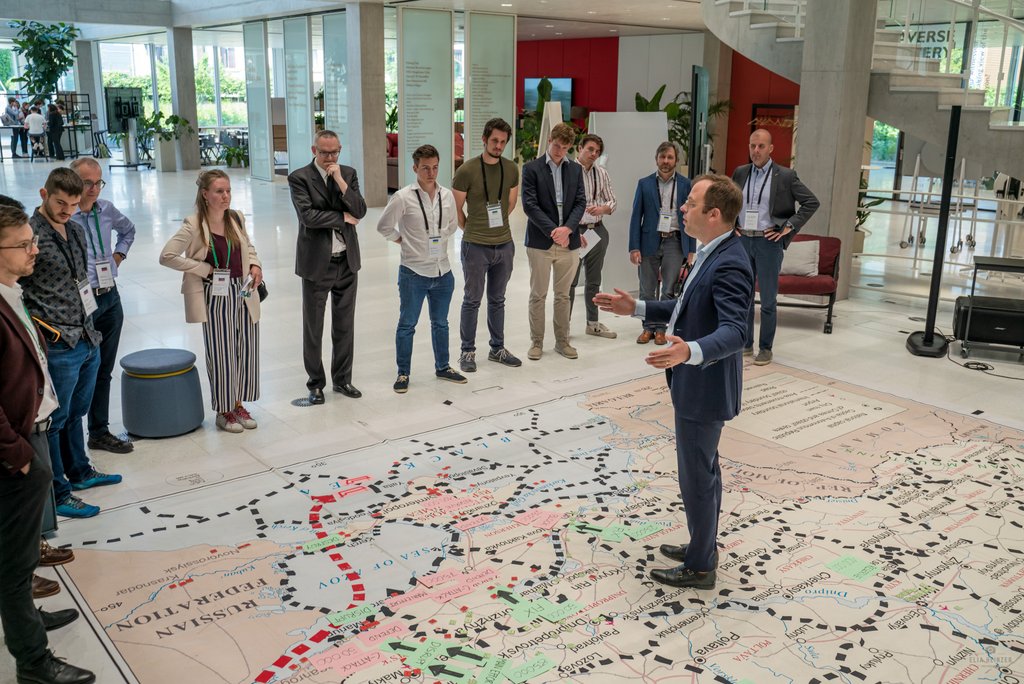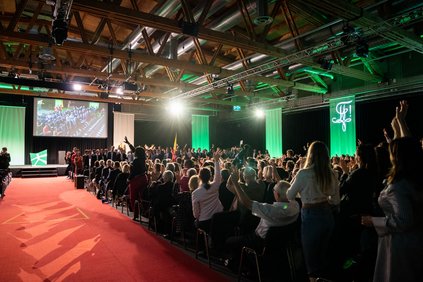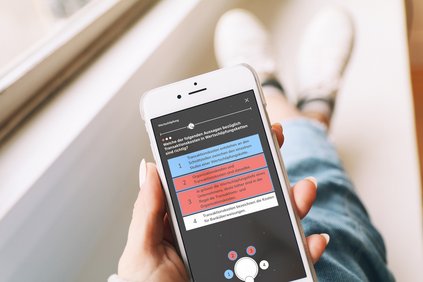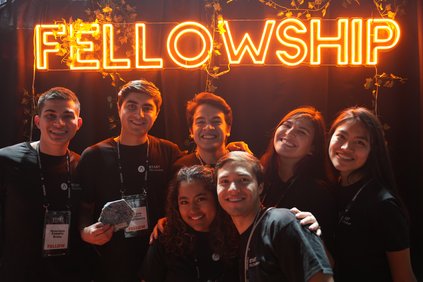Campus - 13.02.2024 - 12:03
Playing games at HSG with serious results
Immersing yourself in a game and learning new things in the process: this is what the "serious gaming" teaching method is all about. HSG faculty challenged students to learn through play. A highlight in 2023 was the "St.Gallen Strategy Days", a two-day strategy game with international participants from diplomacy, psychology, military and government.

Will Ukraine manage an advance through the Russian defence lines? How will the energy crisis develop and how will China and the USA handle arising global situations? Such questions were the focus of the "St.Gallen Strategy Days", a geopolitical simulation that was played out over two days in June 2023 in HSG's SQUARE.
Around 100 participants took on roles as politicians, diplomats, NGO employees or company representatives. Their decisions influenced the course of global politics and economics. In between, they received brief expert input on topics such as negotiation tactics and diplomacy.
Such simulations are also referred to as "serious gaming".
"Serious gaming addresses many phases of the learning process. Participants receive theoretical knowledge. At the same time, they gain practical experience, receive direct feedback and reflect on their actions and what they have learnt," says Diederik Stolk. The Dutchman was the game master of the "St.Gallen Strategy Days" and is an internationally active expert and university lecturer for political and military simulations.
After the "St.Gallen Strategy Days", the organisers from SQUARE team compiled and published a handbook on "serious gaming" . At the same time, a workshop on the teaching method was organised for HSG faculty.
Teaching experiment dared in distance learning
In addition, some HSG faculty have been focussing on game-based learning for years. HSG lecturer and people analytics expert Lucia Görke gave participants input on leadership topics at the "St.Gallen Strategy Days". At HSG, she teaches the Bachelor's course "Psychology: Leadership in Times of Crisis". She states: "Simulations are one of the most effective ways to learn more about strategic decision-making."
During the coronavirus lockdown, Görke was looking for a method to make online teaching more attractive for students. She came across the digital simulation "My Country", in which students act as spies, politicians or diplomats. "For me, using a game in a course was also an experiment."
The experiment was successful: student engagement increased significantly, and Görke was also convinced of the effectiveness of the learning method. "In simulations, students have to make decisions under time pressure and uncertainty. They are directly affected by the results of their actions. This has a strong learning effect." She therefore continues to use "serious gaming" in courses now that distance learning is long gone.
Students experiment with leadership and organisational culture
One course that has been using serious gaming methods at HSG for years is the "Asperitas" organisational simulation: this takes place as part of the HSG's Contextual Studies programme. In the course, students take on different roles in groups within a manufacturing company - they form departments such as HR, Marketing, Production or Finance.
"Asperitas" - the Latin term means roughness - takes place as a block course in which the participants immerse themselves in their roles over three days. "In the simulation, it is central that the various departments cooperate with each other, otherwise your company will end up bankrupt," says HSG lecturer and organisational psychologist Florian Schulz. He will be leading the course from the autumn semester 2024 together with Julia Nentwich, HSG associate professor and psychologist.
The simulation is repeatedly interrupted by reflection phases, and the students also keep a diary of their experiences. "In addition to written phases, we also use more intuitive reflection. For example, we have the students draw a picture that represents the position of their department within the company," says Schulz.
Psychologist Schulz sees the strength of "serious gaming" in the fact that the students have their own experiences instead of working on abstract examples. "This leads to a very lasting learning experience." The students can also try out a lot in the game, he emphasises: for example, they can choose the hierarchically they want and which communication style they want to cultivate.
"We deliberately create an experimental setting within which the students can shape the corporate culture," says Schulz. For the company to be successful, communication and the associated social processes must be at the centre. "This gives students important insights for the world of work. Today, social skills are at least as important as technical knowledge," says Schulz.
More articles from the same category
This could also be of interest to you
Discover our special topics
















